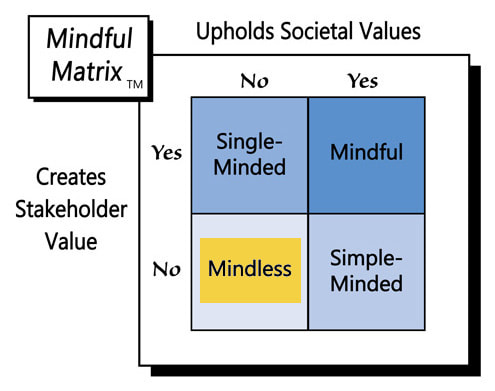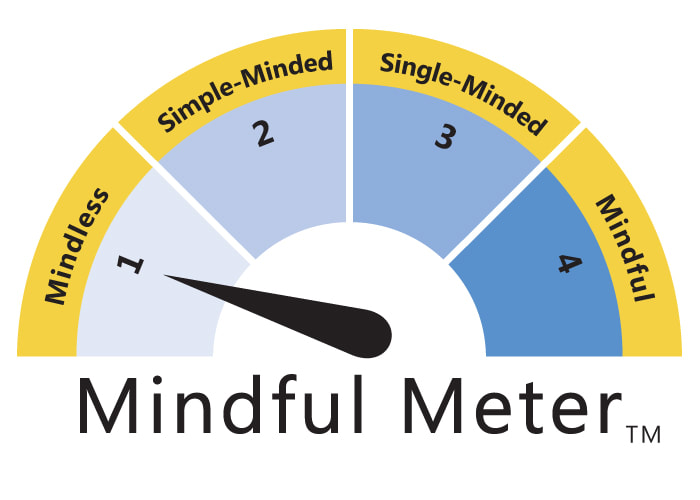Professor Reb Beatty teaches financial accounting at Anne Arundel Community College in Maryland. To aid his students on the first exam, he told them several times to bring a “3 x 5 note card,” on which they could write any information they might find useful during the text. Allowing students a small ‘cheat sheet,’ is not unusual for college courses, especially ones involving quantitative topics.
On the day of the exam, students filed into the classroom with their usual books and bags and the note cards. One student, however, carried something much more conspicuous. Ten minutes before the test, Elijah Bowen entered toting a 3 ft. x 5 ft. poster, packed with information for the exam.
When he first saw it, Professor Beatty disregarded the jumbo card, thinking it was just a study aid that Bowen was using to cram before the test. However, when it became apparent that he planned to use the poster during the exam, the teacher confronted the student. Bowen explained that all of the information Beatty had sent about the card just said 3 x 5. Nowhere was there any mention of inches.
After hearing the explanation, Beatty relented and allowed Bowen to use the card, but in the back of the classroom where other students couldn’t read it. Of course, Bowen was delighted that he got to use the super-sized exam aid, which he had spent over an hour creating the night before. He also was very surprised his professor allowed him to do so: "It was fabulous. I was shocked." "I gave it about a 5 percent chance he'd let me use it."
But what were his professor’s feelings about the liberal interpretation of his instructions? Beatty said he was impressed by the ingenuity: "I was actually very happy for him.” "You have to have a student with the intelligence to recognize the loophole and then have the audacity to put it together and come in and try it." Beatty even took a picture of Bowen with the card and posted it to Facebook, where over 28,000 people shared it. The professor also appended his syllabus, adding the note card’s true size.
So, the story had a happy ending, right? Well, if you’re familiar with this blog, you know there must be more to the analysis. Plus, what does an exam in a financial accounting class have to do with marketing? Let’s see.
There are at least two examples of branding that happened here, the first of which was personal branding. Bowen branded himself as someone who’s not averse to bending the rules, or gaming the system. Although he knew his professor meant inches, not feet, he still tried the ploy, even acknowledging afterward that he doubted it would work.
As mentioned above, reasonable people interpret information rationally based on the context. They don’t argue with a lumberyard that its two-by-four boards should be 2 ft. x 4 ft. thick, and they don’t pretend that note cards are of a similar large size. Perhaps Bowen meant to be funny, but ultimately he showed a lack of integrity: He plotted to gain an advantage over his peers and feigned an unrealistic interpretation of the note card size, which even he didn’t believe. Such behavior does not reflect the kind of individual with whom most people want to work or otherwise interact.
The second instance of poor branding involved the portrayal of accounting—a very important field and a noble profession. Accounting abhors creative manipulation and exploiting loopholes, for which Beatty praised Bowen. Good accountants want their firm’s books to accurately and honestly reflect their firm’s financial realities, as Investopedia suggests:
“Creative accounting capitalizes on loopholes in the accounting standards to falsely portray a better image of the company. Although creative accounting practices are legal, the loopholes they exploit are often reformed to prevent such behaviors. A primary benefit of public accounting statements is that they allow investors to compare the financial health of competing companies. However, when firms indulge in creative accounting they often distort the value of the information that their financials provide.”
By allowing and even exalting Bowen’s gigantic note card, Beatty encouraged behavior that is antithetical accounting. Over time, endorsing such illicit activity will taint the field’s image, i.e., people will think of accountants more as dishonest schemers and less as trustworthy advisors.
College campuses cultivate some crazy behavior, much of which is a fun and harmless part of the undergraduate experience. College is also a place, however, where students develop work habits and reputations that go with them for much of their lives. For these reasons, devious behavior that disparages individual and collective branding must be called “Mindless Marketing.”
Learn more about the Mindful Matrix and Mindful Meter.
Check out Mindful Marketing Ads and Vote your Mind!




 RSS Feed
RSS Feed